Photos: Former crack addict turns Sao Paulo trash into livelihood
Fabiana Silva called the streets of São Paulo home for 16 years as one of hundreds of people trapped in cracolândia, the open-air drug markets in South America's biggest city.
Updated: August 4, 2017 16:38 IST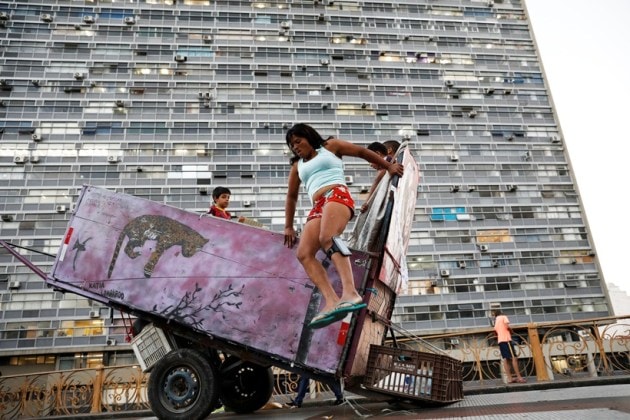 1 / 10
1 / 10Fabiana da Silva called the streets of São Paulo home for 16 years as one of hundreds of people trapped in cracolândia, the open-air drug markets in South America's biggest city. Now the street has become a livelihood for Silva, who has kicked an addiction to crack cocaine and moved into an informal two-story dwelling in a nearby slum.
In this photo Silva, a former crack user who now collects recyclable materials, jumps off her cart loaded with recyclables in Sao Paulo, Brazil.(Image source: REUTERS/Nacho Doce)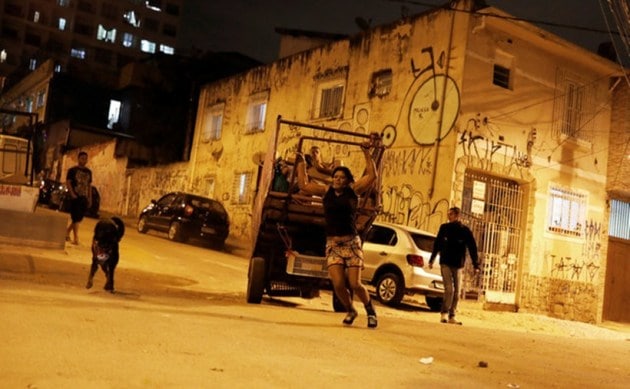 2 / 10
2 / 10Silva, 38, pulls her bright purple cart by hand through the São Paulo, piling it high with more than 400 kg (800 lbs) of recyclables picked from refuse to earn roughly 100 reais ($32) per day - the only money she earns to support three children.
In this photo, Silva pushes her cart loaded with recyclables, in Sao Paulo, Brazil.(Image source: REUTERS/Nacho Doce)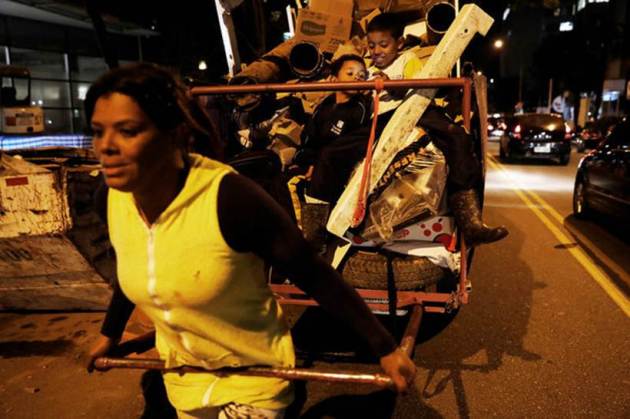 3 / 10
3 / 10"The street today puts food on my table," said Silva, one of a small army of trash pickers who comb the streets of São Paulo, home to 20 million, for materials missed by the city's official recycling trucks.
In this photo,the former crack user who now collects recyclable materials, pushes her cart loaded with recyclables, accompanied by her son Brian (R), 8, and her nephew Jean (C), 9, in Sao Paulo, Brazil. (Image source: REUTERS/Nacho Doce)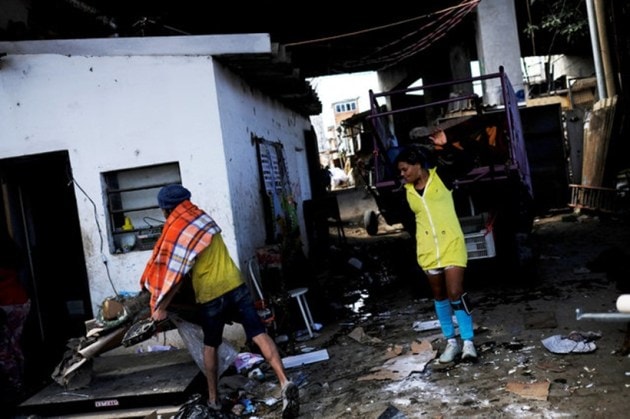 4 / 10
4 / 10Fabiana Silva ran away from her home in the outskirts of the metropolis at age 7 to flee an abusive stepfather, ending up in a corner of the city center where dealers sell openly to addicts living on the street.
In this photo, Silva sells her wares to a cardboard recycler in Moinho favela, in Sao Paulo, Brazil. (Image source: REUTERS/Nacho Doce)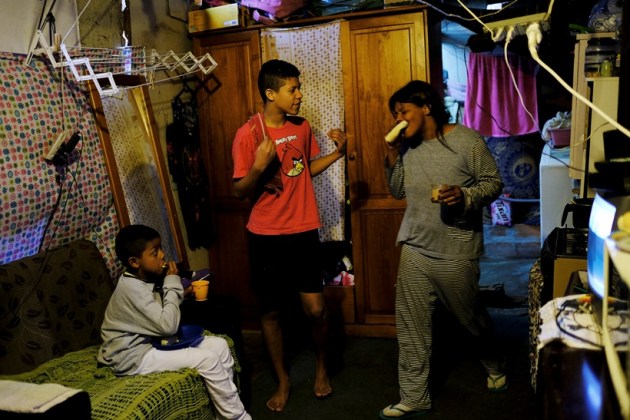 5 / 10
5 / 10Silva described her years in the drug market as "hell." She spent four stints in the juvenile justice system before she was arrested and discovered she was pregnant with her first child, now 17 years old.
In this photo, Silva and her sons Brian (L), 8, and Breno, 14, have breakfast inside their house in Moinho favela, in Sao Paulo, Brazil. (Image source: REUTERS/Nacho Doce) 6 / 10
6 / 10Silva said her children, including an 8- and a 14-year-old, were her motivation for quitting drugs after floating through halfway houses.She said, "It took so much strength for me to leave that life," she said. "But along came my kids, and I just had to get out."
In this photo, Silva stands at the entrance of her house before starting work in Moinho favela, in Sao Paulo, Brazil. (Image source: REUTERS/Nacho Doce)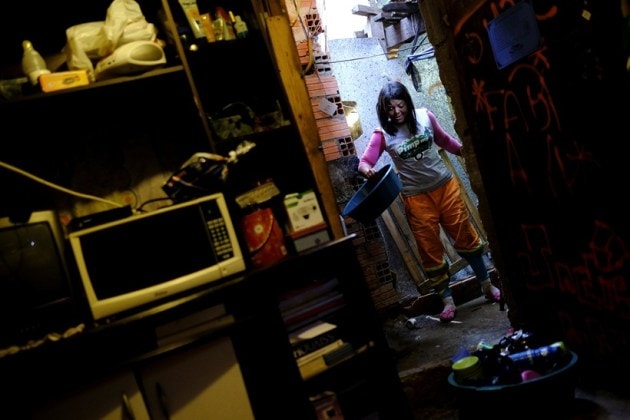 7 / 10
7 / 10Eventually Silva found work as an assistant social worker tending to addicts, a job now requiring a high school diploma, before she turned to recycling for a living.
In this photo, Silva washes dishes inside her house in Moinho favela, in Sao Paulo, Brazil.(Image source: REUTERS/Nacho Doce)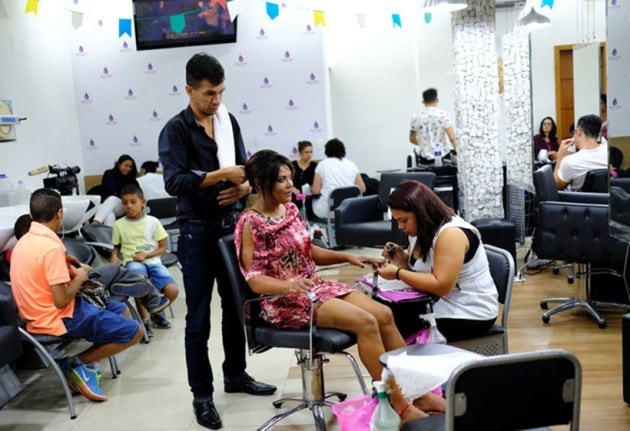 8 / 10
8 / 10"To break addiction, you have to really want out. It's hard when a person is hooked. That's all the body wants," Silva said.
In this photo, Fabiana da Silva has her hair and nails done before her high school graduation ceremony in Sao Paulo, Brazil.(Image source: REUTERS/Nacho Doce)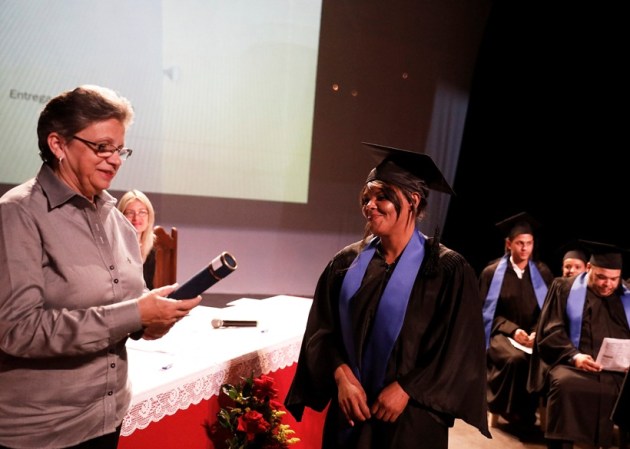 9 / 10
9 / 10Having overcome her own addiction, Silva's aspirations dis not end on the street. She recently graduated from middle school and will start high school this month. She plans to go to university and become a veterinarian.
In this photo, Silva receives a certificate at her high school graduation ceremony at Coracao de Jesus school in downtown Sao Paulo, Brazil.(Image source: REUTERS/Nacho Doce)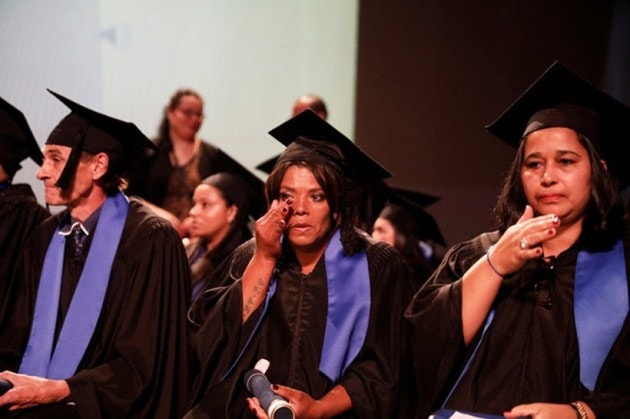 10 / 10
10 / 10"I was a street girl," Silva said, standing outside her humble new home while on a break from recycling runs. "I left school in third grade. Now, after becoming an adult, I went back to school to graduate."It's a great achievement for me. It means so much."
In this photo, Silva holds her certificate as she wipes her tear at her high school graduation ceremony at Coracao de Jesus school in downtown Sao Paulo, Brazil.(Image source: REUTERS/Nacho Doce)











